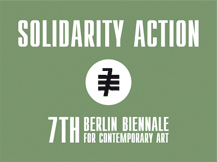Starting with the fact that art should play a decidedly active role, it would be important to extend the questions posed by P/Act for Art not just to the city of Rome, but to the Italian system as a whole. As founder of a private exhibition space I can clearly make only a very limited contribution, based on my personal view of things. MONITOR opened its doors in October 2003. Since then the country has gone through what are perhaps some of the darkest years of its last three decades of history, in which it has incessantly fallen and gotten back up, only to arrive at the present state of affairs, which can actually be seen as a critical, fundamental moment for the development of a new political and financial system.
Contemporary art has always had a secondary role in Italy. Our country simply is not interested in it. It doesn’t sell enough tickets to guarantee it a role of a certain importance. Commercial galleries are a reality stuck in the underbrush of nameless business activity (there is no real category under which to open a gallery, not even at the Chamber of Commerce), without any specific rules. At the same time, museums work with budgets that just barely suffice to pay the personnel and the utility bills. Rome is a city that over the last forty years has lost what, like it or not, has to be considered the life’s blood of the system: artists.
Today we are seeing a new driving force. Awareness seems to have been reawakened, even among those who had just been laying under a blanket of false certainties. Initiatives of quality are starting to multiple, the supply at times exceeds the demand, but if the former contributes to raise the level of quality, then frankly it is still a good thing. Artists are finally starting to settle again in the city. I believe that Italy, unlike other European countries, should see private subjects as fundamental partners for the development of a great many sectors, including art. Private initiatives (collectors, art galleries, foundations, non-profit spaces – the latter are always set up by private subjects) are the life’s blood of the system, which often compensate for the big gaps left behind by public institutions.
PAOLA CAPATA
Director of MONITOR gallery, Rome.


